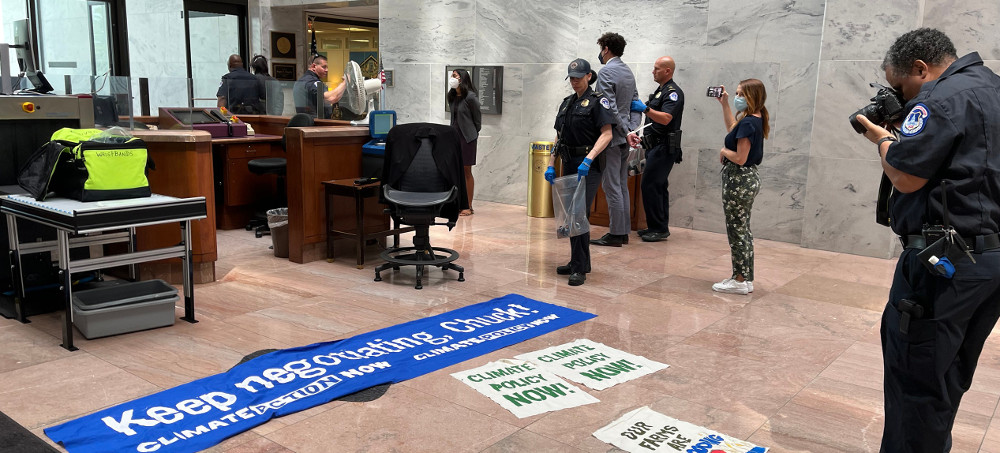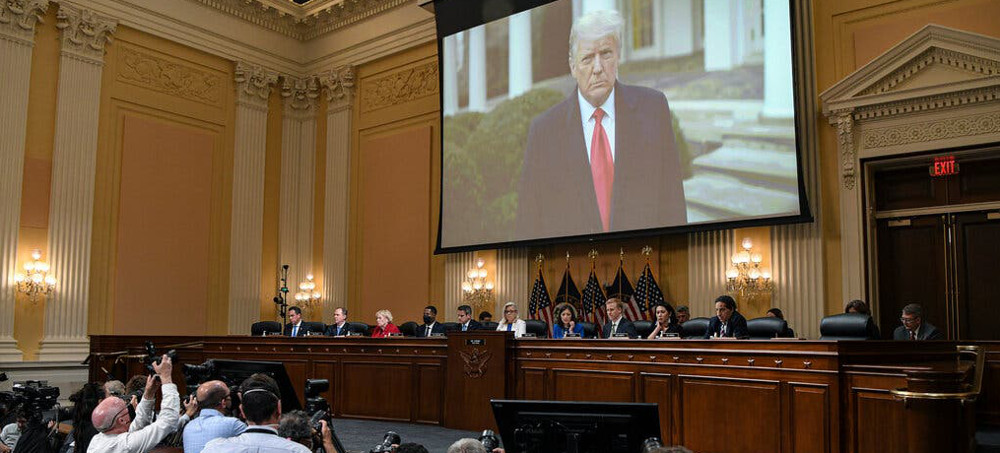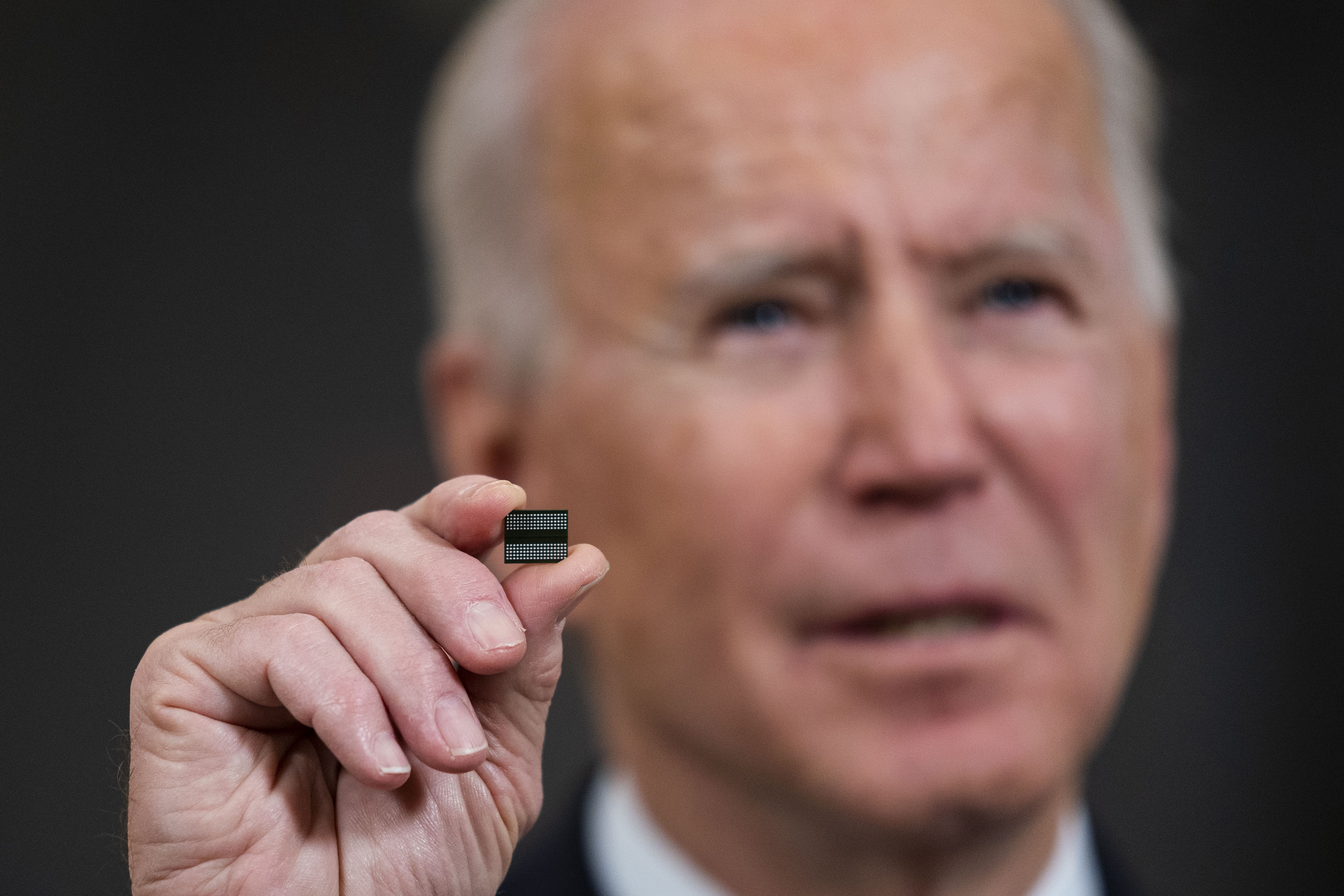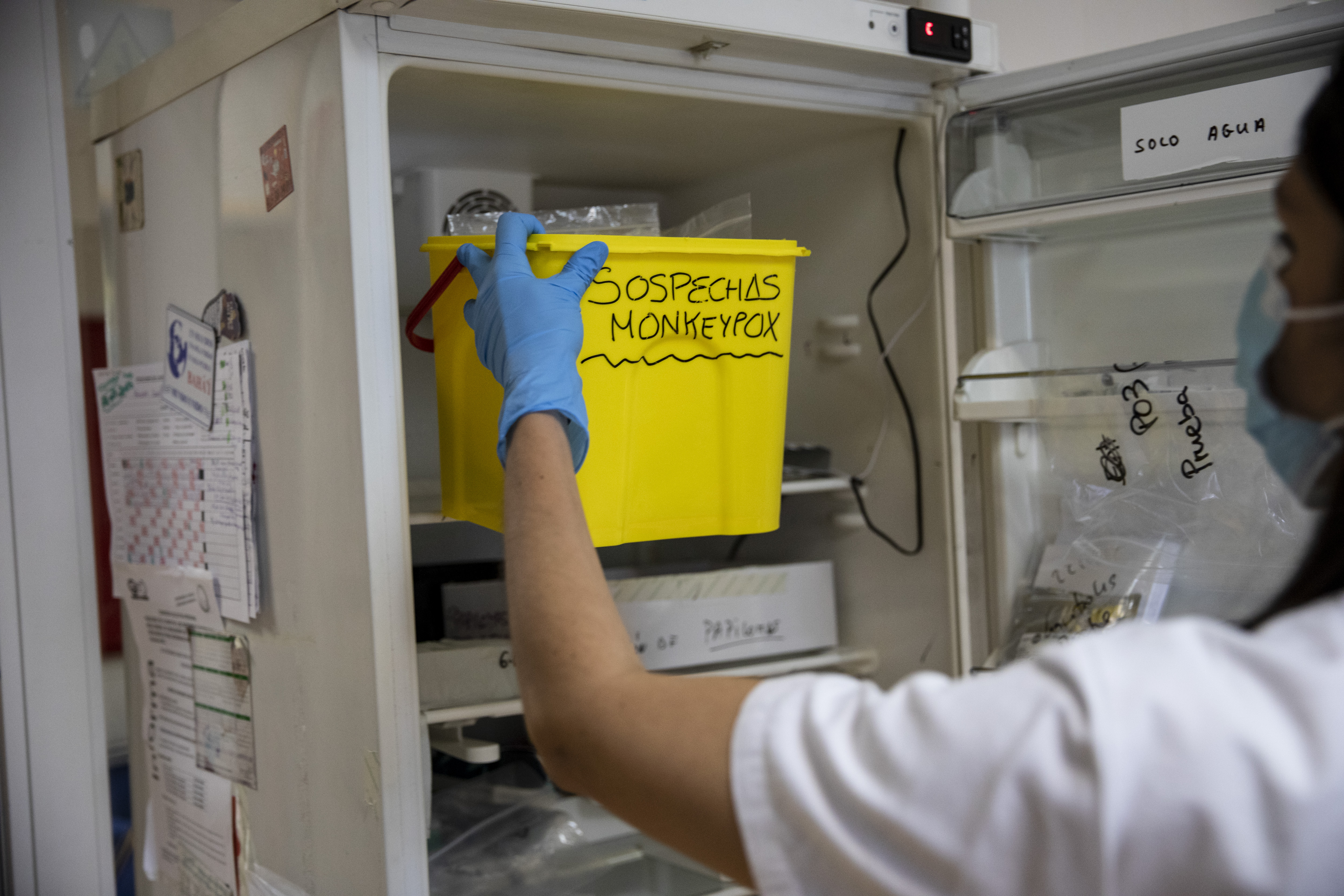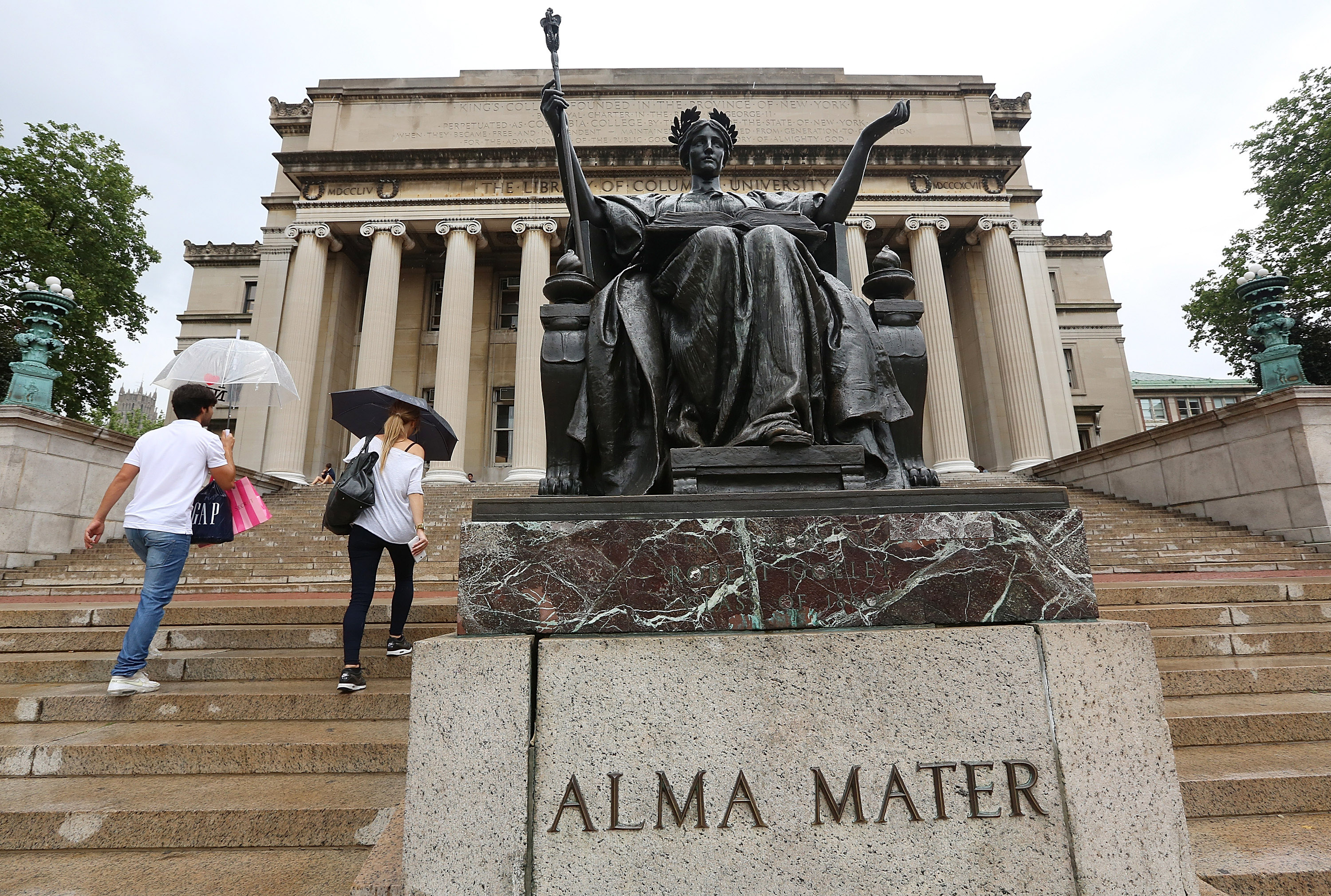Live on the homepage now!
Reader Supported News
With climate legislation in peril and time running out, a group of young aides broke from a tradition of deference and staged a sit-in at Chuck Schumer’s office, demanding action.
This powerful minority includes the President of the United States and all five hundred and thirty-five voting members of Congress. These are not regular people—they are, disproportionately, senior citizens and millionaires, with means of keeping cool that are not available to everyone—but they, too, live under the weighted blanket. “We’re almost out of time to pass climate legislation before the midterms because Congress goes on recess for all of August,” Saul Levin, a congressional aide, said the other day. “Congress leaves town for August because it’s impossible to stand outside for five minutes in D.C. and breathe. If that doesn’t sum up the situation, I don’t know what does.”
Last Thursday, Levin escorted me through a side entrance of the Cannon House Office Building, a cell phone pressed between his shoulder and his ear. (A few lobbyists and other visitors, waiting to be let inside, clustered near the door, seemingly drawn to the stray wisps of air-conditioning.) He is one of several Democratic staffers who spend their free time organizing their progressive colleagues, through both formal channels (the Congressional Progressive Staff Association, the Climate Left Organizing Coalition) and less formal ones (happy hours, group chats). Levin, twenty-six, is curly-haired and lanky; he wore a dark button-down shirt patterned with white flowers and a pin advertising the Congressional Workers Union, which he and other staffers had organized, and which had just publicly launched. “The whole deal with being a staffer, generally, is you’re not supposed to exist,” he said. “You don’t stick your neck out, you don’t have your own opinions—you’re a vessel for ‘My boss thinks this, my boss wants that.’ ” This assumes a top-down, institutionalist theory of change: you’ll get more done by toiling invisibly within the system than by going rogue.
Congress has operated this way for decades. Entry-level aides, generally in their twenties and chronically underpaid, have been expected to endure all manner of hazing and mind games. But during the past year and a half—as congressional staffers had front-row seats to the spectre of January 6th, their bosses’ paltry response to the murder of George Floyd, and the Democratic Party’s exasperating failure to pass the vast majority of its agenda—internal decorum started to break down. Republicans are expected to win majorities in at least one house of Congress in November, meaning that Democrats will have sweated through a rare trifecta with little to show for it. “At a certain point, it’s, like, O.K., we tried being patient, we tried to be good little soldiers, and it got us nowhere,” Levin said. “Imagine going home and facing your relatives: ‘Oh, cool, you work on climate policy? Well, where the fuck is it?’ ”
He took an elevator to the fifth floor, where he works in the office of Representative Cori Bush, of Missouri’s First District. It was an optional work-from-home day, given that the boss was in St. Louis, and most of the staff had opted to take it. Before Bush was elected to the House, in 2020, she was a Black Lives Matter organizer in and around Ferguson; on the walls were framed portraits of Shirley Chisholm, Angela Davis, Martin Luther King, Jr., and a large photo of Michael Brown wearing a cap and gown. Levin’s desk was decorated with a small stuffed meerkat and a Green New Deal poster. “A lot of staffers are really progressive in private but can’t be open with their boss about their politics,” he said. He is an exception. Levin, who was a climate organizer as a student and now advises Bush on climate and labor policy, has attended protests at coal plants and oil pipelines; two days prior, Bush had been one of seventeen representatives to get arrested at an abortion-rights protest outside the Supreme Court. (Another was Andy Levin, Saul’s father, a representative from Michigan.)
Throughout 2021 and 2022, Joe Manchin, the critical swing vote in an evenly divided Senate, kept signalling openness to President Joe Biden’s agenda and then changing his mind, creating cliffhanger after cliffhanger, like the star of a reality show in which the stakes are not a cash prize or a record deal but the future habitability of the planet. Rajiv Sicora, a House climate-policy staffer, told me, “The people whose job was to negotiate with Manchin”—President Biden, Senate Majority Leader Chuck Schumer, and others in Democratic leadership—“apparently started from the premise that he was operating in good faith, and that, if they indulged him enough, he would eventually be a team player. That, combined with the fear that if they pushed him too hard he would switch parties, led them to a deeply flawed strategy: all carrots and no sticks.”
In early July, with time on the legislative calendar running out, Levin and about a dozen other activist staffers convened a series of emergency calls, Levin said, “to brainstorm anything we could try that hadn’t been tried yet.” They agreed on an escalating series of last-ditch efforts: an open letter to House and Senate leadership, followed by an open letter to President Biden, and finally some sort of direct nonviolent action, possibly a sit-in at Schumer’s Senate office. All of these rebukes would come from the staffers themselves, a form of internal revolt that was, as far as they could tell, without precedent. They started multiple Signal groups, letting in staffers they trusted and weeding out anyone who might tip off their bosses. When Levin circulated the idea, quietly, among staffers, he said, “even the idea of a letter—us publicly critiquing our bosses, and on policy no less—was so far outside the box that it took people a second to digest.” The first open letter, addressed to Schumer and Speaker Nancy Pelosi, came out on July 12th. “Will you act now, or will you be forever remembered for your failure to outmatch one Senator and a handful of corporate lobbyists?” it read. More than two hundred staffers signed on, using their initials for semi-anonymity.
It’s possible that no amount of arm-twisting ever could have persuaded Manchin to fall in line. But, Sicora argued, “we don’t know what playing creative hardball with Manchin could have accomplished,” because Democratic leadership “never really tried.” (Like all the staffers quoted in this piece, he was speaking in his personal capacity.) “Is Schumer on the phone with Manchin every two hours, coming up with new ultimatums, going, ‘If you don’t vote for this, then I’m stripping you of your committee assignments’?” Levin said. “Creating leverage and whipping votes is literally Schumer’s job. We are asking him to do it as if his life depended on it, because our lives kind of do.”
On July 14th, just before the D.C. heat grew truly unbearable, Manchin announced, apparently for the final time, that he would not vote for the proposed climate legislation. “It seems odd that Manchin would choose as his legacy to be the one man who single-handedly doomed humanity,” John Podesta, a former adviser to Barack Obama and Hillary Clinton, told the Times. This was the assessment that a relative moderate gave to the paper of record. Among progressive Hill staffers, the rage was even more visceral. “The vibe after that was basically, Fuck it, let’s go, Schumer sit-in, what do we have to lose?” Levin said. “It wasn’t, like, We know this is gonna work. It was more, like, If the chance of this working is any greater than zero, then we have to try.”
When the workday was over, Levin met up with Emma Preston, a legislative assistant to Representative Ro Khanna, of California. They practiced the trip from the Cannon Building to Schumer’s office in the Hart Senate Office Building, about half a mile north. So far, about half a dozen staffers had committed to joining the sit-in. “We could probably get a bigger crew together if we had more time,” Preston said. They had decided to do it on Monday, when there were still a few days before August recess, which left them only Friday and the weekend to prepare.
The Hart Building looks like the headquarters of the dystopian megacorporation in “Severance”: marble walls; wide, quiet hallways; and, in an open atrium, a massive, dark steel sculpture, by Alexander Calder, called “Mountains and Clouds.” (The sculpture resembles a mountain range; a mobile, representing the clouds, was removed in 2016, having been deemed structurally unsound. According to a Capitol Web site, it will be “refabricated and reinstalled as funding becomes available.”) They found Schumer’s name on a touch-screen directory and made their way to his corner office. “Dang, this building,” Preston said. “Our little House buildings could never.”
Afterward, they took the Metro to Columbia Heights, where Levin lives with five roommates and at least two dogs. Another House staffer, who described herself as “a former neolib who has, like a lot of people, been radicalized by all the bullshit,” came over to offer “emotional and logistical support.” Before continuing to plan the sit-in, they had to finalize their open letter to President Biden. They sat next to one another on a dining banquette, laptops arrayed carefully to fit on a narrow table, and pored over a Google Doc, incorporating edits from a handful of fellow-staffers. “O.K., we’ve got ‘negotiate with urgency’ and ‘the urgency this moment demands’ in the same sentence,” Preston said.
“ ‘Gumption?’ ” Levin said. “ ‘Discernment?’ ”
“Can we refer to Manchin as a coal baron just one time?” Preston said.
“I feel like the word ‘commensurate’ should be in there somewhere,” the third staffer said. “Or maybe just ‘Shit’s really real—why don’t y’all fucking act like it?’ ”
When they were happy with the letter, they sent a link to hundreds of Hill staffers, asking them to sign. They also sent it to employees at several executive agencies, including the Departments of Energy, the Interior, and Health and Human Services. “The people who signed the last letter—you might assume they all work for the Squad, but you’d be surprised,” Preston said. “We had people from pretty moderate offices, even people who work for leadership. We had staffers coming to us who aren’t even all that progressive, frankly—they’re just heartbroken and terrified that nothing is getting done.”
On Saturday night, Levin and his roommates threw a birthday party for Preston, who was turning twenty-six. (Her birthday is actually in August, but Preston, like many Hill employees, planned to be out of town.) On Sunday, they held a training, during which a lawyer answered questions about potential workplace retaliation and told staffers what to expect if they got arrested. Also, in Levin’s back yard, they hosted an “art build,” where staffers and outside volunteers collaborated on signs and banners. The biggest, a blue banner that read “Keep negotiating, Chuck!,” was several yards wide but flexible enough to fold inconspicuously into a backpack. Preston, who was raised in Council Bluffs, Iowa, painted a red barn, a blue deluge, and the words “OUR FARMS ARE FLOODING.” Levin made a sign that said, in its entirety, “TRY.”
On the morning of July 25th, Preston wore a bracelet bearing her sister’s name and carried a note from her mother in her pocket. Levin shaved for the occasion (“If this is about youth speaking out, then I want to look extra youthful”). They walked into the Hart Building along with fifteen other staffers, all wearing face masks and business suits. They opened the door to Schumer’s office suite and entered in single file—passing a “Schumer for Assembly” campaign poster, from 1974, and a New York Post front page announcing Schumer’s first election to the Senate, in 1998—while Levin addressed the staffer at the front desk. “We’re here to encourage Senator Schumer to reopen negotiations on climate policy,” he said. “So we’re gonna be sitting in his office today and not leaving.”
“You want to sit here?” the Schumer staffer said. “As a protest?”
“Yep,” Levin said. He glimpsed an open door at the end of a hallway and led the group in that direction. (“I just saw some expensive-looking chairs and thought, That’s probably where we want to be,” Levin said later.) It turned out to be the Majority Leader’s personal office: photos of the Brooklyn Bridge, the Anchor Bar in Buffalo, and, on an otherwise empty desk, a name tag reading “Mr. Schumer.” (The desk once featured two small figurines symbolizing bipartisanship: an elephant and a donkey, made from lumps of West Virginia coal, both gifts to Schumer from Manchin.)
“Would you mind sitting in the front office?” the Schumer staffer said, following the group.
“We’re going to sit here, as a form of civil disobedience,” Aria Kovalovich, a staffer who advises Representative Khanna on environmental issues, said.
“I understand,” the Schumer staffer said. “We all have the same values. Let’s just do it from the front office.” The activist staffers stayed where they were, occupying Schumer’s couches, armchairs, and cream-colored rug.
“Anyone have some sweet tunes to put on?” Levin asked.
“I have Bernie performing spoken word,” another protester said. Instead, they sang labor songs—“Solidarity Forever” and “Which Side Are You On?”—looking up the lyrics to the later verses on their phones. When they ran out of songs, they took turns giving speeches to the group. “This is a breaking point I’ve been waiting for for a while,” Philip Bennett, a staffer for Representative Ilhan Omar and the president of the Congressional Workers Union, said. “This next generation of Hill staffers is unlike any previous generation. Change is coming.”
The Capitol Police showed up within minutes. “We’re going to give you three warnings,” an officer said. “If at that point you don’t leave, it then becomes either trespassing or unlawful entry.” More officers arrived, until a dozen or so were gathered in the hallway. After about ten minutes, a supervisor came in and issued a final warning: “Anyone who does not want to get arrested, now would be the time to disperse.” The majority of the group got up to leave. Preston, Levin, Sicora, and three others remained seated. (“I did a lot of journalling this morning,” Preston said later. “I knew I was ready.”) The cops came in, and the remaining protesters stood up and waited to be flex-cuffed. “Guess Chuck really didn’t want to talk about climate today,” Levin said.
They were loaded into police vans and driven across a parking lot to a booking center. Two hours later, they were released, with court dates set for late August. They went to a nearby bar to debrief—the bar was technically closed, but the owner told them that they could sit on the patio as long as health inspectors didn’t show up. “O.K., kids, who wants to catch their second trespassing charge of the day?” Levin said.
After a while, the group started to break up. Preston, Kovalovich, and Courtney Koelbel, who works on the House Committee on Oversight and Reform, headed toward the Cannon Building, looking a bit dazed. It was already late afternoon; still, their offices were so close, and they had so much work left to do. Walking north on First Street, they passed a power box decorated with a poster of John Lewis, the late representative and civil-rights activist, and the motto he popularized: “Good Trouble.” Just beyond it was the dome of the Capitol and, above that, a blue-gray bank of storm clouds. There were still hours to go before sunset, but the sky above Washington was almost completely dark.
Follow us on facebook and twitter!
PO Box 2043 / Citrus Heights, CA 95611

